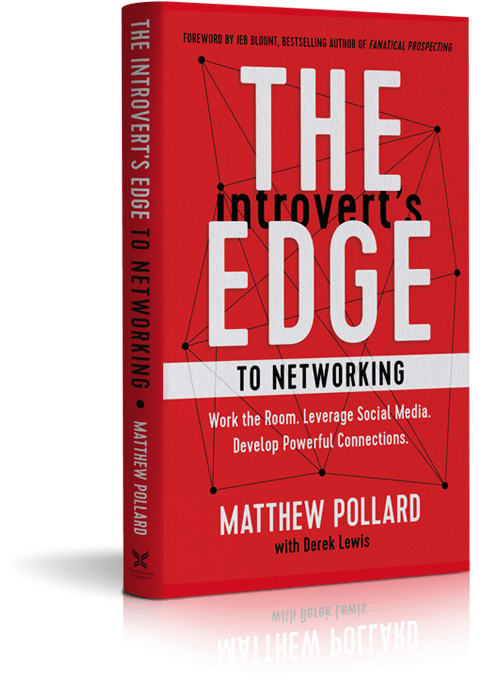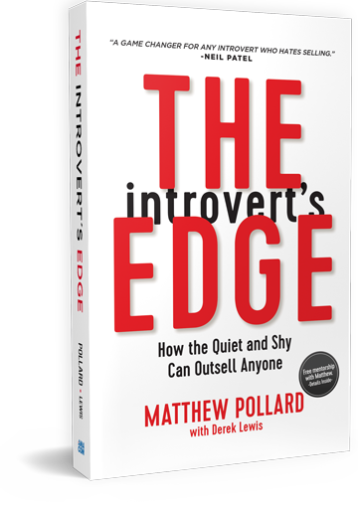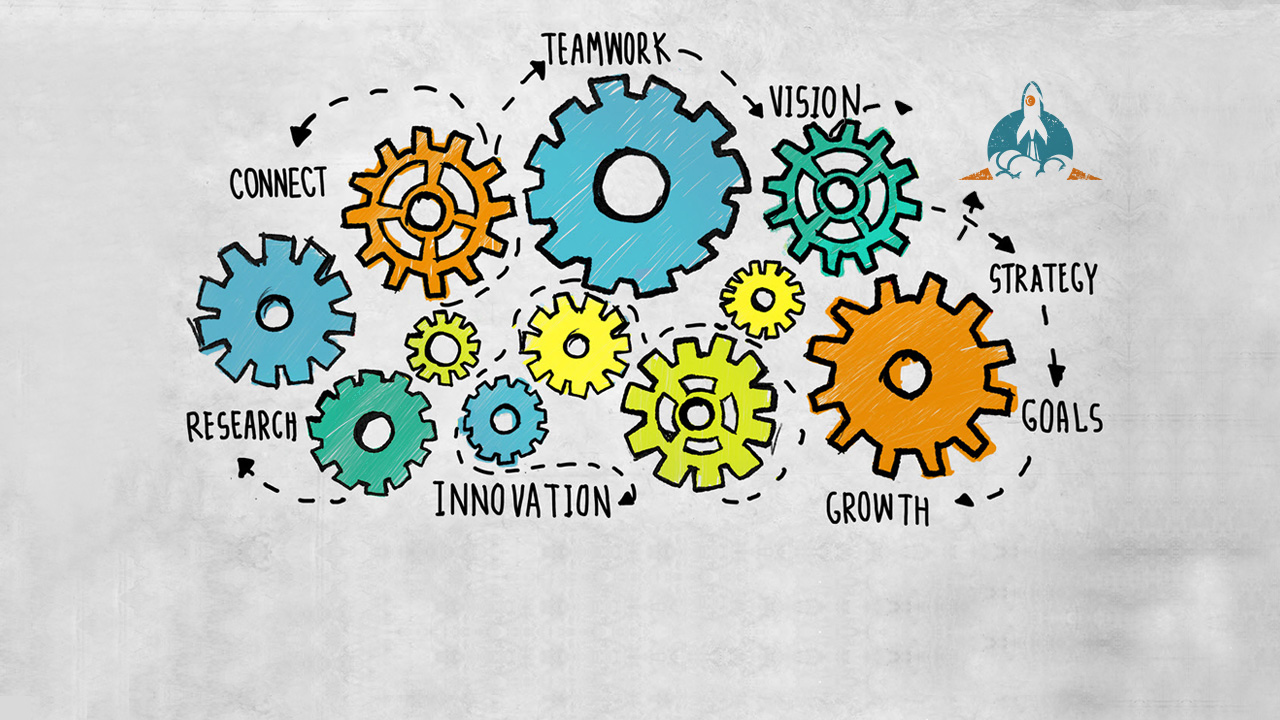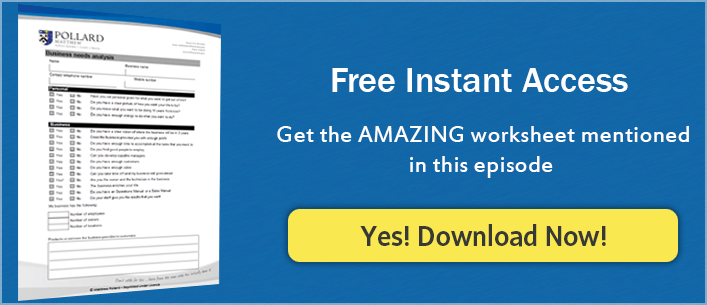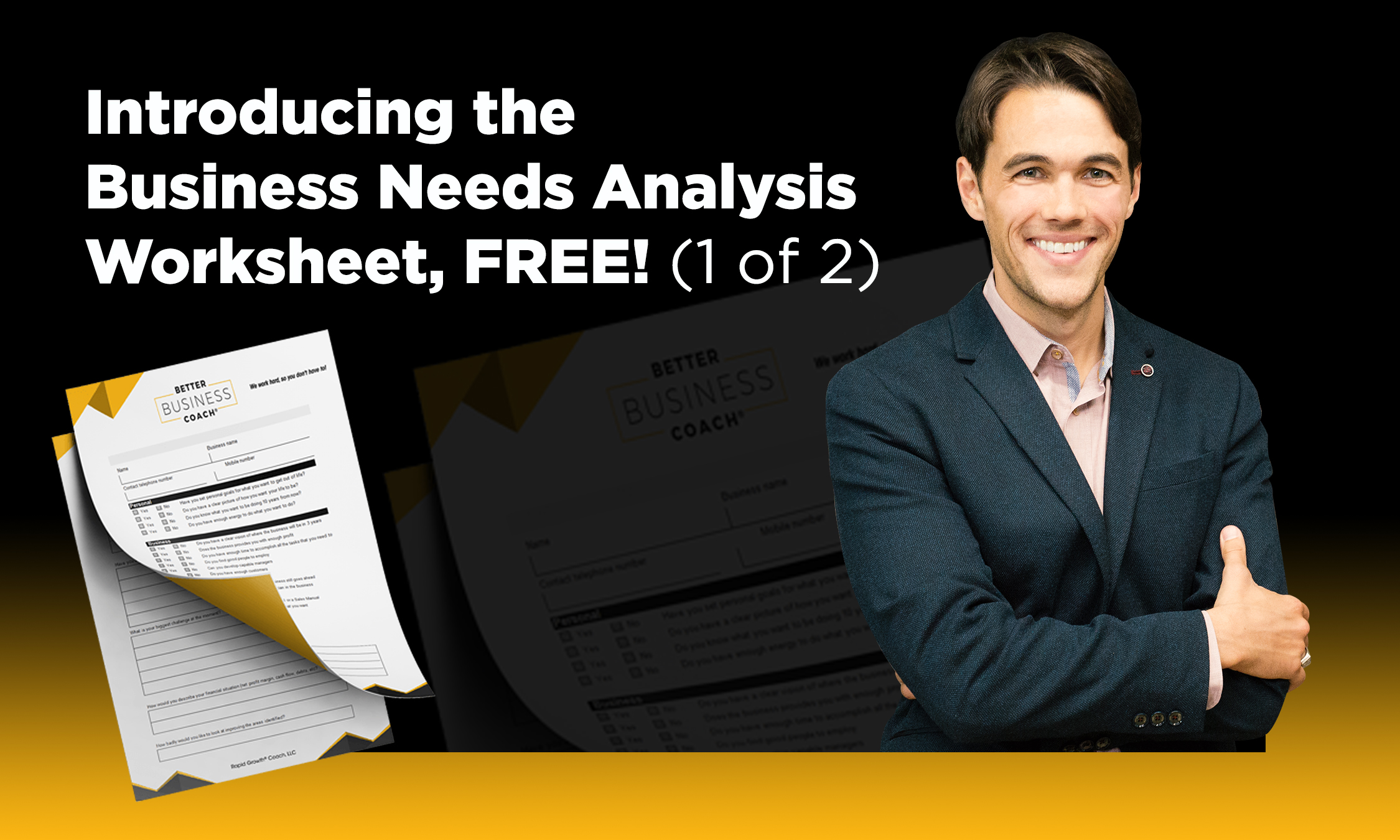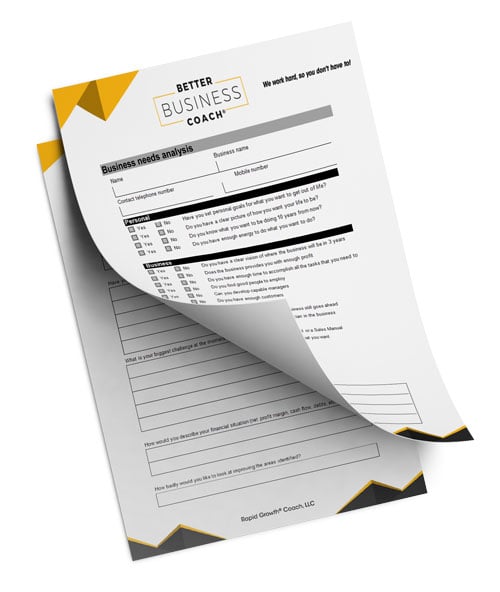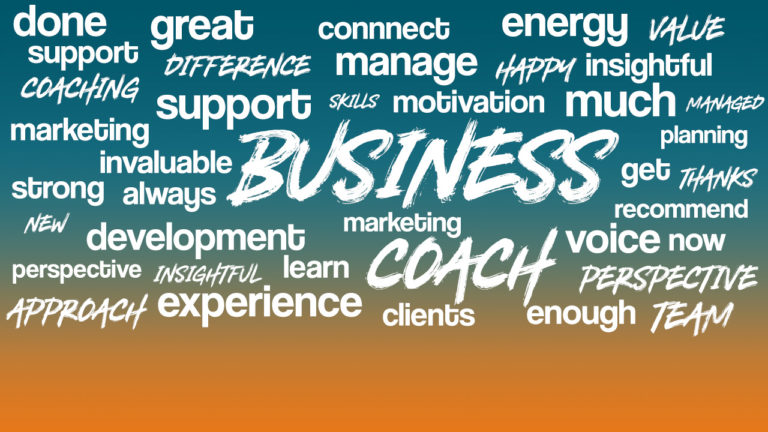Better Business Coach Transcript
This is Better Business Coach session number seven.
Hello everyone, and welcome back to Better Business Coach. My name is Matthew Pollard, and as always, I will be your rapid growth guy.
I’m super excited about this specific session because this is the first time I’m giving you access to one of my actionable and downloadable worksheets that you will be able to use with your client straight away. You’ll be specifically excited about this one because this is the worksheet I used to translate prospects into paid weekly or monthly coaching clients.
Now, if you’re listening to this in audio, this is also a video podcast so that I can break down, point by point, how to use this specific template. If you’re listening to it in the car, no worries; you’ll always be able to access it later on www.BetterBusinessCoachPodcast.com or www.MatthewPollard.com/BBC007. This is also where you will be able to download the actionable worksheet for later to use, so make sure you go back to www.MatthewPollard.com/BBC007 so that you can get access to that straight away. Okay, let’s get straight into it, shall we?
Okay everyone, so this is the business needs analysis. Now, obviously, name, contact number, mobile number, business names, these are all pretty self-explanatory, so I won’t go through that. Now, the first thing to understand with this is that you really don’t want them to elaborate. This form is really just to get yes or no answers on the basis of raising awareness that they have a problem.
Business Needs Assessment
See, many business owners will know that they have a problem. They’ll have a sense that something is wrong, but they won’t know exactly what it is, and this form is designed to be a discovery document in order to help them discover what that issue is. Now, if you have looked at the Lewin’s model of change, you will understand that you need to unfreeze change and then refreeze, and this document is about unfreezing them to the fact that they have to make a change and that they probably need to use you to make that change.
Business Needs Analysis Example
Now, this form, as I said, is just a yes or no document. It’s the sell document. It’s to get people talking. It’s to make them understand they have a problem. You will obviously delve much, much deeper if they hire you as a coach, but don’t make the common mistake that many, many coaches make by going into problem solving mode, offering solutions, and basically giving away all the answers to fix their problems before you actually get paid.
This is so important. So many coaches give away enough answers to keep the client busy for a month, two months, three months, and then they try and get payment for a coaching client moving forward, and the client says, “Let me think about it,” or “Let me work on this and then I’ll come back to you.” I mean, I’ve even seen this happen in networking events where they start offering solutions because they’re trying to prove their worth. Don’t prove your worth by showing them how to fix the problem; prove your worth by showing them that they have a problem and by telling them exactly what the problem is. This form will allow you to do that.
Now, you don’t need to ask every one of these questions. The formula is designed to cover everything in a logical order. However, if you feel like they’ve answered one of the questions as part of one of the other answers, then move on. If you feel like the question is obvious, then don’t ask just for the sake of asking, because people will see that you’re just following a form. This form is to give you a guideline, and really, it will make you look like a sensational coach. However, if you start asking the questions and following the process even if they’ve already answered the question, then they will see that you’re not a good coach, you’re just using a good form.
Now, you’ll notice that the first set of questions says “Personal,” and these are questions asking about themselves personally. Some people are not personal people, and as a result, you may choose not to use this. For instance, if you’re dealing with corporate, you should consider not using it. However, if you’re working with small businesses, generally you will find that they will absolutely love this form. They eat it up. I utilize this form with 80% of the clients that I work with, and people that use this template tend to report the same back to me.
So let’s look at the first set of questions. “Have you set personal goals for what you want to get out of your life?” Now, what this means is do they know what they want? I previously spoke about a Nightingale quote where he says that successful people are successful because they know where they’re going.
It’s as simple as that, and many people, if they don’t have personal life goals, may not be achieving in their work life just because they don’t know why they’re doing it. Therefore, it’s important that we get them to set these goals. Again, we’re not, at this stage, helping them set them. We could go into smart goals, we can talk about the works of one minute manager and setting the why statements behind those smart goals, but that’s not what we’re doing here. We just want to know whether or not they have set out goals in their life.
The next question is “Do you have a clear picture of how you want your life to be?” Again, some people just go through life without ever wondering if that’s how they want it to be. They’re just doing what their parents told them to do or what their family and friends suggested they should do, and they really don’t have an idea of what they want to be. Again, this is about highlighting problems, and I hope you can see that two questions in, if you get “No” as an answer here, you will already have two major sessions, if not five, that you can already work on with this client.
Again, they may start to talk to you about stories and start to embellish. You have to let the client go a little bit, because sometimes, as we spoke about when we discussed understanding and coaching clients, they just want to vent and talk, and they may hire you just for listening. However, while getting through this form, it’s not required.
The next question is “Do you know what you want to be doing 10 years from now?” So many people just live day by day; they’re just in that process of survival. They may not have a clue. Other people may know, and they may want to have a house, or they may want to save up for a deposit for a house, or they may want be in a completely different business. You don’t know, and by asking this question, you get to understand what it is, and obviously, if they know the answer when you get into the sessions about where they want to be in 10 years’ time, you know you can move forward with it. If they don’t, you’ll know that you have to do a little bit more personal development planning and training with them to help them work out what they want to achieve in 10 years, so that then you can help them get there. Again, we’re not fixing this problem today.
Okay, so let’s scroll down a little bit, and the next question in personal life is “Do you have enough energy to do what you want to do?” Now, this is the biggest question or the best question you can ask. So many people say no because they’re working so hard and they’ve got so many things to do. You’ll start to see stress come out in the person, and you start to realise that you can really help this person, because stress and not getting enough time in their day is killing their lifestyle, and by saying that their lifestyle is being killed and they’re really struggling to have energy, they’re really saying that they need help.
Okay, so let’s scroll down to the business questions. The first one is “Do you have a clear vision of where your business will be in three years?” This question is very similar to “Where do you want to be in 10 years?” If you don’t have a clear vision of where you want be, you’re never going to be successful getting there. If you don’t know where the posts are, how are you going to know where you’re going to run?
The next question is “Does your business provide you enough profit?” This is a great question, because I find about one in 100 say yes. Now, remember that I used the word profit, not sales, not turnover. See, profit is a very different question. They could be turning over $5.7 million a year and making less money than a part-time receptionist at the front desk because their costs are so high.
Other people have bad systems, and they have to hire so many staff to help them that they’re not making enough profit. So again, if their response is “We have a $6.5 million turnover,” you say, “Well, that’s fantastic,” of course, be excited for them, because as a coach, you can get hired just because you are excited and you’re their biggest supporter. However, ask the question again. “How much profit are you making? Are you getting enough profit?”
Again, I didn’t ask for exact financials. You haven’t built up a relationship with them just yet to ask. We will ask that question perhaps a little bit later on, only if you feel comfortable asking, because it’s not that important. You just want to know if they’re making enough profit. If they’re a $6.7 million business, however, this is great news, because you can respond with, “Well, that’s great. It’s a shame you’re not making enough profit at the moment; however, with a turnover like that, small, minute changes in systems, processes, and staffing can have dramatic effects on your bottom line, and we can really work together on that.” Again, I’m not offering solutions; I’m just getting them excited about what we can do together.
The next one is very similar to the question “Do you have enough energy?” It is “Do you have enough time to accomplish all the tasks that you need to?” Again, this is going to highlight two things. One is if they have poor time management, and secondly, it is an indication of the staff and teams that they have. Do they have strong teams? Do they have strong staff? And if they don’t, they’ll say no to this, and again, you know that you’ve got a whole series of sessions that you can work on.
The next two questions are a great indicator of EI skills, or emotional intelligence. See, so many people move into management of staff or become business owners because they’re good at this skill and they get promoted, or they’re good at this skill so they go into business for themselves, and then all of a sudden they’re managing staff, and they’ve got no idea how to do this. They’ve never been trained how to do this, so a lot of them, horribly, manage with sarcasm. I’m sure we’ve all had a boss that’s rude to us and treats us like a lesser being, and we don’t know why, but it’s just because they had no skilled training; they’ve got no degree in this, and they don’t know how to do it. So “Do you find good people to employ?” and “Can you develop capable managers?” are great questions to ask to work out whether or not they have these EI skills. And so many people reply with “You can’t find good people these days,” and this is a great indicator that they need help in emotional intelligence development.
Now, if you haven’t read anything about Goldman, Goldman and talks about emotional intelligence. It’s completely coachable and teachable. It’s not like IQ. Emotional intelligence is trainable, it’s coachable, and it’s something that we can really help business owners with. You’d be surprised at how quickly you can change how they are viewed by the staff just by introducing emotional intelligence to the business owner.
Next, we ask “Do you have enough customers?” and “Do you have enough sales?” This will highlight whether or not they need sales coaching. Now, as we spoke about, I do have a podcast launching very shortly, just about eight weeks away, called Get More Customers. However, in the meantime, if you’re not comfortable with sales, either seek somebody else’s assistance to help you coach them in sales, or read so that you make sure that you have enough content to be able to teach them. The last thing you want to do is get them to think that you don’t know what you’re talking about just because sales and niche marketing in differentiation is not your strong point.
You’re allowed to have weaknesses. A strong business coach will admit they have weaknesses and offer assistance to help people with that, just like an accountant always pushes to a lawyer for legal questions and a lawyer always pushes to an accountant for tax questions. Sales, niche marketing, differentiation, business coaching, emotional intelligence, staff development, they’re all very, very different facets.
I was lucky enough to be experienced in all of them because I started in sales and moved into running my own businesses in business coaching. If it’s not your strong point, definitely make a commitment to yourself to learn it. However, make sure you help your clients the best you can by providing external help in the short term.
The next question is “Can you take time off and your business still go ahead?” This is a major question, because what you’re really saying here is “Are you a business owner or are you self-employed?” Robert Kiyosaki talked about the cash flow quadrant and outlined four quadrants, which are “I’m an employee,” “I’m an investor,” “I’m self-employed,” or “I’m a business owner,” and this will highlight whether or not they are a business owner or self-employed.
You will find that so many people are self-employed. If they take a day off, if they get sick, that’s it. They’re done, and so many times, I’ve had to coach clients to stop working in the business and start working on the business so that they can start hiring staff and training them on their functional skills so that they can start to move out of the business. As we spoke about, so many business owners will worry about their staff ripping them off by stealing the knowledge that they spent years learning. However, unless they take that risk, they’re never going to be a business. They’re always going to be self-employed, and their next meal ticket is always going to be something they have to work for to achieve.
The next question is just a follow on to that, and that is “Are you the owner and the technician in your business?” Again, we’re just highlighting problems and getting them to admit that they need help to move out of that.
The next question is “Does the business enrich your life?” This is a great question to ask, because this gives you the opportunity to champion them. They’re going to say yes; however, they’ve just got so much to do, and you’re going to elicit that story when they start to vent and open up to you about all of the problems that they’re experiencing that are stopping them from having it enrich their lives. However, it still does, but if that was gone, they’d be much better off, and by doing this, you get the opportunity to say, “Well, that’s awesome. You’re getting the opportunity to do what so many other people can’t,” and you’re going to build them up here, because obviously they’re highlighting so many problems, yet they’re still happy, and that something you can really congratulate them on, and this is going allow you to build rapport.
The next question is “Do you have operations manuals and sales manuals?” This is a hilarious question to ask as a coach because the response you’ll always get is “What’s that? Do I need those? You mean like what McDonald’s has got?” And always, the response is going to be “No.” However, this is going to highlight that they have no succession plan in place. I mean, what happens if they’re 45 or 50 years old and they’ve got no manuals? Well, what that means is they don’t have a business. They’re self-employed, and if their staff leaves, or if they leave, there is no business.
So we need to highlight the fact that if they want to do what so many business owners dream of doing, which is one day selling their business and retiring, without operations manuals and sales manuals, that is not going to happen. They may say that they want to sell their business and move out over 10 years, and if the operational manuals and sales manuals aren’t done, you know you’ve got a guaranteed coaching client from that moment onward, because all you’ve got to do is harp on the fact that if they don’t have that, they don’t have the future that they want. If they haven’t mentioned that, you’ll still highlight it, because this is a horrible thing for a business owner to find out. Most of them aren’t aware, and you can do so much to help them here.
Next, “Do your staff give you the results that you want?” Again, we’ve asked this question separately than the ones about whether or not they can hire good staff and whether they can create capable managers because we want them to have one last opportunity after the operations manual and the sales manual to say, “No, my staff don’t give me the results that I want, and I feel like if I’m not there, they don’t perform.” And what they’re really saying here is “Not only do I have no manuals, I have to be in my business at all times. I am stuck in my business.”
And now we’ve highlighted so many issues, and if you can’t highlight so many issues here, then you doing something wrong, because every business will have pretty much have three, four, or all of these problems. None of them will have nothing, because you can always improve a business.
So, again, you’ll find that a lot of these questions focus around the four facets of business coaching that we spoke about before, which is your vision, your system, your strategy, and your people. Let’s go through the business questions very quickly just in case you want to take notes.
“Do you have a clear vision of where the business will be in three years?” This is all vision and strategy. “Does the business provide you with enough profit?” This is strategy, systems, and people. “Do you have enough time to accomplish all the tasks you need to in one day?” This is systems and people. “Do you find good people to employ?” Obviously, this is people. “Can you develop capable managers?” This is systems and people. “Do you have enough customers?” This is going to be strategy, systems, and people. “Do you have enough sales?” This is going to be vision, strategy, systems, and people. “Can take time off and your business still go ahead?” This is going to be systems and people. “Are you the owner and the technician within your business?” This is going to be vision, system, strategy, and people. “Does the business enrich your life?” This is basically asking whether it’s become a job, and that covers vision, systems, strategy, and people. “Do you have operations manuals and sales manuals?” Clearly, this is systems. “Do you have the staff to give you the results that you want?” That’s systems and people.
So, again, each one of these fits into one of those four core ideologies that we discussed previously. All of these are designed to be thinking questions, to get them to unfreeze and recognise that they have a problem and that they need to do something to fix it. What you’re really doing is shaking the tree and waiting for the fruit to drop, and trust me, there will be lots of fruit that will fall right into your hands.
Okay everyone, we’re coming up to nearly 20 minutes, so this will be a perfect time to press pause. I hope you see just how much this is going to work to translate prospects into paid coaching clients. I know for me it was transformational. It got customers to open up and it made them putty in my hands. I hope you can see that this is going to do same for you.
Now, if you haven’t yet already, make sure you go to http://www.BetterBusinessCoachPodcast.com or www.MatthewPollard.com/BBC007. There you will be able to download this worksheet so you can use it with your clients. Let’s get straight into the next session, so I’ll stop now. It should already be uploaded for you, so make sure you click “Go on” and let’s continue on. Thank you.







